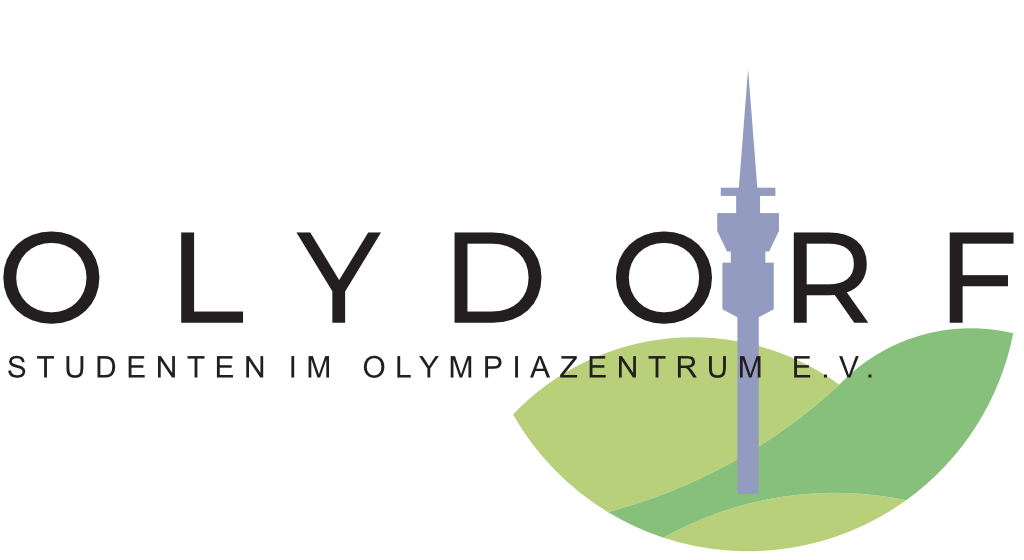Village Life
Germany's last council republic - the Olympic Village!
55 years after the first council republic was declared in Munich, the more modern version of the Soviet model emerged in the Oberwiesenfeld district. In July 1974, the residents of the former women's village in the Olympic Village founded our association "Students in the Olympic Center e.V." Recognized by the Munich Student Union, we, the "Students in the Olympic Village," essentially manage ourselves and live almost self-sufficiently in our small, autonomous council republic "Olydorf".
Twelve "councils" (committees) and various businesses shape the community life of the 2,000 students in the village. The GRAS (Green Area Committee) takes care of the organic waste in the student district and enables the embellishment of the bungalow exterior wall by lending painting materials. Committees such as the photography club, pottery committee, and theater committee, to name just a few, offer variety through regular offerings such as photography courses, open pottery workshops, or theater rehearsals. It's almost like the worker councils of the early 20th century, but with one significant difference: "Our association is self-sustaining and self-financing," says Ilja Herdt, one of the former board members of "Students in the Olympic Center." The association is comparable to a small business. Our members can, for example, earn extra income by working in the businesses (beer tavern, OlyDisco, OlyLounge) or as craftsmen directly outside their door and participate in many exciting projects, such as the OlyLust, Munich's largest student carnival event.
Newcomers are given an almost royal welcome: "I had only been here for two days, and already there was a letter from the house spokesperson in my mailbox," Florian reports. One house spokesperson is appointed for every 100 students, who also sits on the board of the association. Each house spokesperson welcomes the newcomers and hands them the brochure "New in the Village," a guide through the "Olydorf". "I was immediately invited to a newcomer tour," Florian continues, "We were shown the entire village with its workshops, beer tavern, disco, and reading room, and the association introduced itself." Florian, who had completed an apprenticeship as a carpenter before starting his studies, was recruited as a carpenter for the WA, the workshop committee, on this occasion. In addition to the woodworking shop, where customized furniture can be produced for one's bungalow, there is also a metalworking and electrical workshop, where tools are also available for repairs in one's own four walls.
For the bungalows in the shadow of the Olympic tower are the dacha in the small council republic - a foretaste of home ownership. There are 1052 of these mini-houses in the Olympic Village, each an award-winning, albeit special, architecture at a bargain price thanks to the Student Union. Students pay around 320 euros for their bungalow with a rooftop terrace. Each bungalow has a wardrobe, a kitchenette, and the obligatory wet room on the "ground floor," with a small staircase leading to the sleeping area - 24 well-planned square meters. "The advantage of the bungalow is that you can isolate yourself if you want to. You simply close the door behind you. However, it is very difficult not to integrate into the village," says Wolfgang. "Through the small alleys, you feel like living in a holiday resort" - a colorful holiday resort, as almost every bungalow is painted differently by its owner. This showcases the creativity and individuality of the students with a variety of motifs and paintings adorning the exterior facades of the small concrete houses.
